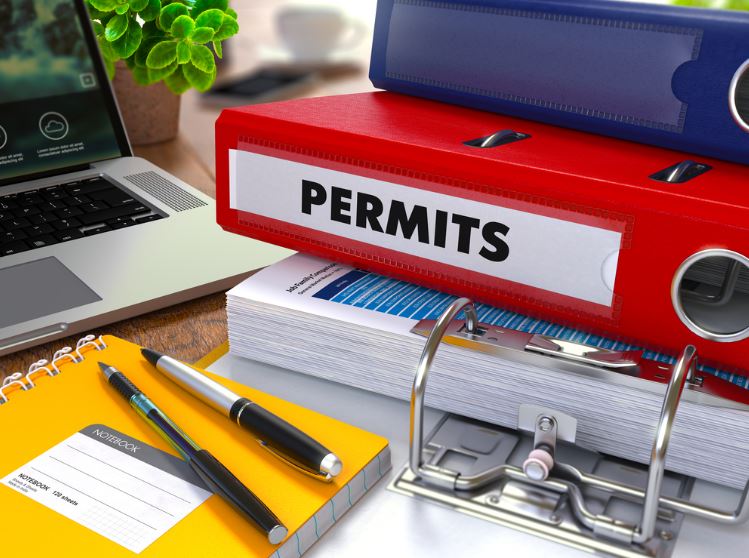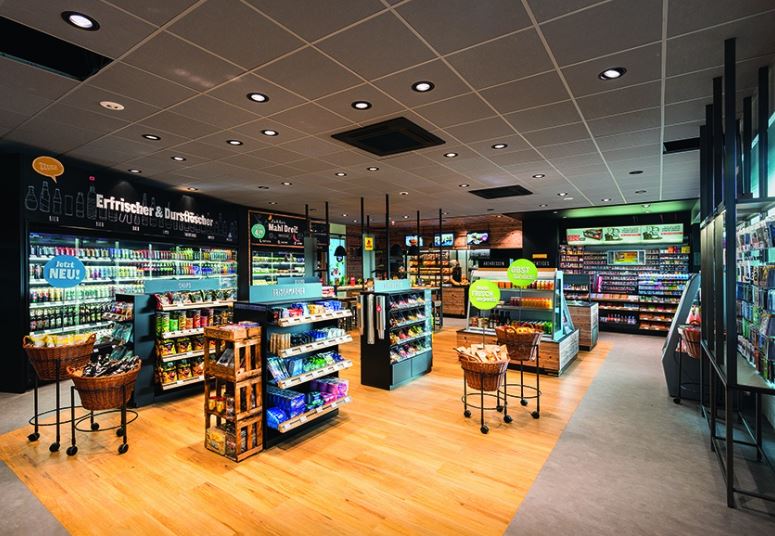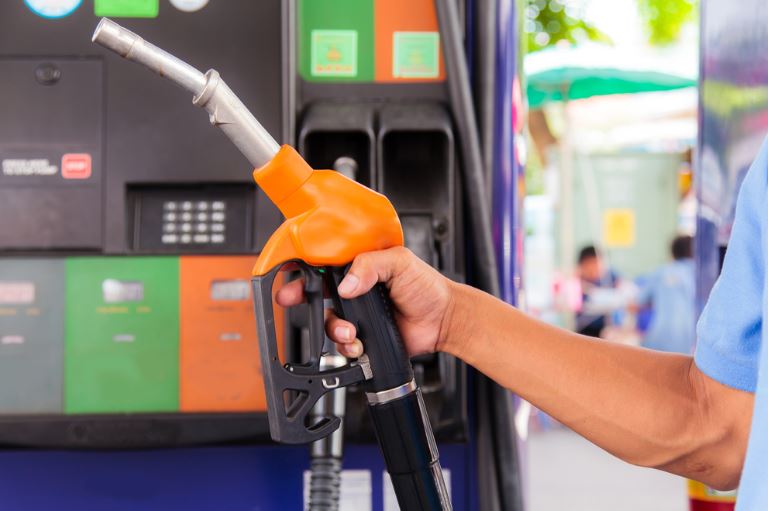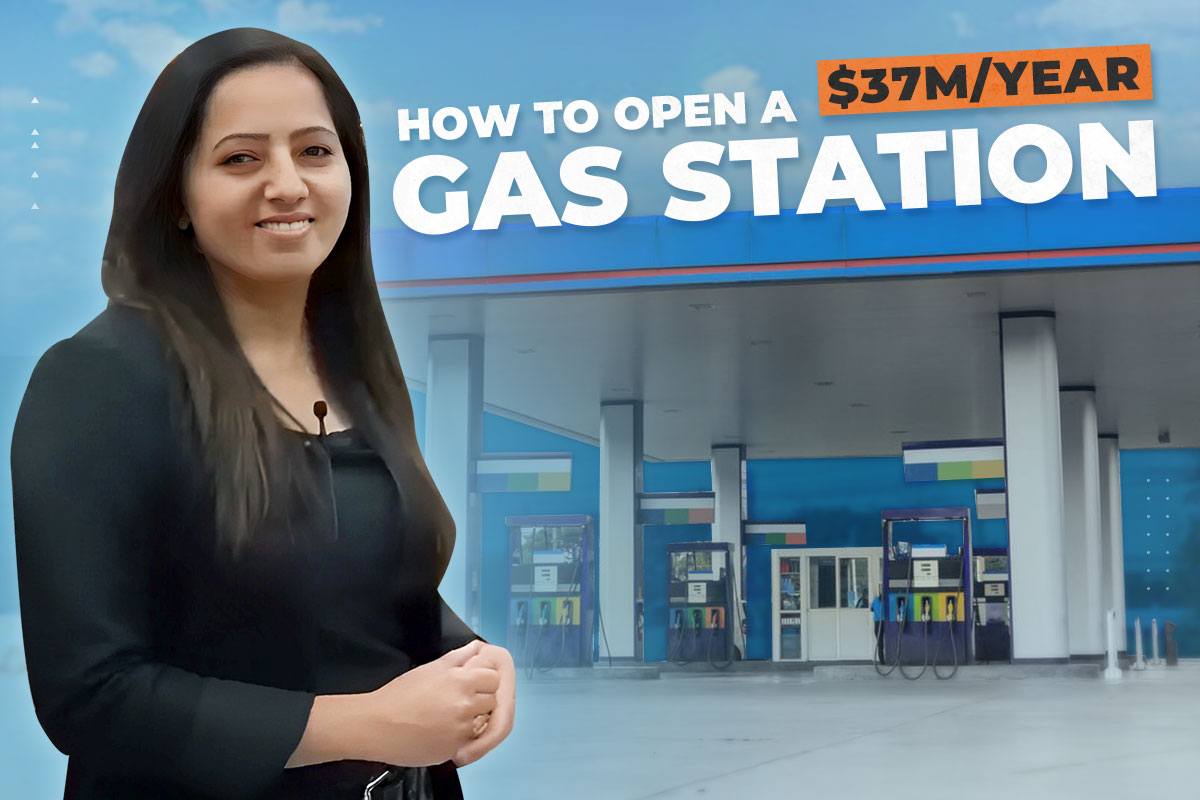There are over 120,000 gas stations that double as convenience stores in the United States. Plus, 62% of convenience stores are run by a single-store operator.
We interviewed Parm Bhullar about opening a gas station. She bought her first Arco in 2019 with her husband and brother-in-law. Today, they make over $37M in annual revenue.
She helped us break down the process so that we can show you how to do it step by step. You can either keep reading or click on any of the links below to jump to the section that interests you:
- Gas Station vs. Convenience Store
- Learn About the Gas Station Industry
- Case Study: Parm Bhullar and Partners
- How to Open a Gas Station Business
- Step #1. Create a Gas Station Business Plan
- Step #2. Form the Business
- Step #3. Get Funding
- Step #4. Buy the Business Location
- Step #5. Secure a Gas Supplier Contract
- Step #6. Get Permits and Business Licenses
- Step #7. Get Business Insurance
- Step #8. Start Marketing the Business
- Step #9. Manage Daily Operations
- Gas Station FAQ
- Closing
Gas Station vs. Convenience Store

The terms gas station and convenience store (or “c-store”) are sometimes used interchangeably, but they actually mean different things. A gas station consists of gas pumps and possibly a convenience store. For instance, Costco gas stations don’t have a convenience store, while most 7-Elevens do.
A convenience store offers a selection of commonly needed products that are easy to grab and purchase on the go. While convenience stores often have gas stations connected to them, they don’t need to have gas pumps.
For this blog, we’re focusing on opening a gas station that also includes a convenience store. If you’re not interested in selling fuel, check out our blog about how to open a convenience store instead.
Learn About the Gas Station Industry
You’ll need to do additional market research, but we’ll provide a broad overview of the industry to help you get started. All data in the following sections is from the UpFlip Academy unless otherwise cited.
How much do gas station owners make?
The average gas station owner makes $255.6K in profit each year based on revenue of $14.2M and 1.8% profit margins. These figures assume that owners aren’t paying themselves a separate salary. If you pay yourself a salary, it should be approximately $65.4K, according to the U.S. Bureau of Labor Statistics.
Are gas stations profitable?
Gas stations have an average net profit margin of 1.8%. Your exact profit margin will vary based on location, loan rates, and supplier deals. However, when we spoke with Parm about her margins, she said:
How much does a gas station cost?
Opening a gas station costs between $250K and $2M, but the average start-up cost is between $875K and $1M. Your location’s property values and construction costs will heavily impact the cost of starting a gas station.
How much does it cost to buy a gas station?
According to LoopNet, you can buy a gas station for between $75K and $50M. Prices range widely depending on location, earnings, the size of the building, and other tenants in the space.
Case Study: Parm Bhullar and Partners
Parm Bhullar and her partners bought their first gas station in 2019 with a $1 million investment. Together, they’ve expanded to own eight gas stations with multiple partners. Their business now collectively makes $37 million a year in revenue.
She explained that their first gas station was a $3.5 million purchase:
She also said that working with a known brand makes it easier to start a business. In terms of choosing inventory, here’s how Parm identifies products to sell:
Watch our interview with Parm below:
How to Open a Gas Station Business
You’ll need to go through the following steps when opening a gas station.
- Create a business plan
- Form the business
- Get funding
- Buy the property
- Secure gas contracts
- Get permits and licenses
- Buy business insurance
- Market your gas station
- Manage daily operations.
Let’s look at each of the steps you’ll go through when you open a gas station.
Step #1. Create a Gas Station Business Plan
You need to write a comprehensive business plan to open a gas station and pursue financing. You’ll want to include the following elements:
- Executive summary: Write a brief overview of your entire business plan.
- Company overview: Explain why your business will become a successful gas station.
- Financial plan: List your start-up costs and the cost of ongoing operations.
- Senior management: You’ll need a team to manage your gas station. Introduce potential investors to your team and the overall business structure.
- Marketing plan: Explain how you’ll market your business.
- Competitive analysis: Analyze the market, identify your competitors, and explain how you’ll compete with them.
- Operations plan: Detail how you’ll run the company, including hours of operations and whether you’ll work hands on at the convenience store. Make sure to mention your approach to hiring.
- Industry analysis: Explain how the industry has performed. Describe any key market trends and the financial outlook for the industry as a whole.
- Insurance: Identify the insurance you’ll need and document it.
- Licenses and permits: Include a list of all licenses and permits you’ll need to open and operate a new gas station business.
- Customer analysis: You’ll want to focus on where your gas station is compared to other gas station businesses. Identify how many customers live within a three-mile radius, how much traffic passes by your location, and the slow and busy times for your area. When possible, document their demographics as well.
- Products: Create an inventory list with products, SKUs, unit cost, and sales price based on suppliers’ quotes.
- Appendix: Provide documentation to support your business plan.
Your business plan needs to be detailed to get a business loan. Learn how to write a business plan.
Step #2. Form the Business
Forming a business entity is the next step in starting a gas station. Before forming your business structure, consult with your attorney to see which type of business is best for you. You’ll need to choose between a sole proprietorship, partnership, limited liability company, or corporation.
Don’t operate as a sole proprietor if you’re going to open a gas station. You don’t want to be personally liable for legal risks like robberies or a gas pump exploding.
Most gas station owners choose a limited liability company because it gives them tax and business advantages over a sole proprietorship or corporation. Plus, they usually pay lower fees than a corporation. However, it may be more difficult to get a loan.
Lastly, you’ll need to choose a business name and apply for an employer identification number with the Internal Revenue Service and your home state.
Step #3. Get Funding

Starting a gas station requires a substantial investment. Construction alone can run over $350K, and that’s in Idaho! If you’re going to buy a gas station, the price tag can be more or less based on your location.
Parm told us that buying a gas station instead of opening a gas station from scratch is less risky because you already know how much money it will make.
SBA Loans
The Small Business Administration (SBA) has loan programs to help small businesses like gas stations get started. They won’t lend money directly to you as the business owner. Instead, they work with other institutions to reduce their risk by backing up to 85% of the loan.
When asked how she bought her first gas station, Parm said:
The benefits of an SBA loan include a lower down payment, longer payment terms, and better interest rates. However, SBA loans still require lots of collateral, paperwork, and time during the approval process.
Business Loan From a Bank (Conventional)
With good credit, you could apply for a traditional business loan from a bank. These loans aren’t backed by the SBA and often have stricter requirements.
Plan to have 15% to 20% of the start-up funds and a credit score of over 700. You should also be prepared to guarantee the loan with personal assets, property, or equipment.
Step #4. Buy the Business Location
Location is the main thing that will impact the amount of traffic you’ll attract with your gas station.

When we asked Parm about her top three tips for people who are opening a gas station business, she answered:
You’ll need to conduct market research while choosing a location for a gas station. Here are some factors that affect whether a location is right for a gas station business:
- Highways: Easy accessibility from a highway or busy intersection means increased traffic.
- Commuting routes: A location on a main route to and from major employers will help you attract returning customers.
- Competition: More competitors in an area usually means there are more customers, but you’ll need to work harder to win their business. Most people won’t drive more than two miles out of their way.
- Wholesale clubs: Wholesalers like Sam’s Club or Costco are always in prime locations, but they also have cheaper gas prices that are tough to beat.
- Construction: Existing or future construction may impact traffic patterns and the local area.
- Laws: State and federal environmental laws may impact the placement of gas stations.
Opening a gas station in a new and developing area can help your business steadily grow with the neighborhood. Plus, you should be able to find less costly real estate in these areas.
Environmental Assessment
Business owners need to obtain a Phase 1 Environmental Site Assessment of their location. This assessment must be completed by an environmental professional (geologist or engineer) who will determine the environmental history of your location and adjacent properties.
This document is essential for two key reasons:
- The Phase 1 Assessment is an SBA requirement (page 384) if you want to obtain a loan for a gas station business.
- It will allow you to back out of a purchase agreement if the assessment is unfavorable and your agreement includes an environmental contingency clause.
A qualified real estate attorney with experience dealing with gas station agreements should know about this clause. However, it’s up to you to make sure it’s in the purchase agreement. It’s the only way you’ll be able to legally withdraw from a sale and keep any deposits.
Step #5. Secure a Gas Supplier Contract
Partnering with a franchise can ease some of the financial burden (but not all), and an established brand can serve as a key marketing tool. Parm explained:
Each gas station franchise has different financial requirements for opening a location. Some require more than a $1 million investment and a background in management or entrepreneurship before they’ll consider you.
Here’s a list of some of the top gas station franchises. You can check their qualifications based on your business plan:
Step #6. Get Permits and Business Licenses

Permits and licenses for a gas station differ in each state. Gas station business owners are responsible for compliance. Some standard permits and licenses include:
- Building and fire inspections
- Tank and pump inspections
- Water discharge permit, if required by your state (not a NPDES permit)
- Health inspection
- Alcohol, tobacco, and lottery ticket licenses
- Food and beverage distributor licenses
- Certificate of occupancy
Each state, county, and city may have unique licensing laws and fees. A quick search like “gas station licenses in [your city]” should direct you to the correct page.
States also conduct random inspections to ensure that you’re complying with all legal requirements. Tank and pump inspections are usually conducted by each state’s department of agriculture.
You’ll need to apply for a Motor Fuels Retail Outlet License when starting a gas station. This is the tax license that allows you to sell motor fuel in your state.
The title may differ a little by state. For instance, it’s just called a Motor Fuel License in Massachusetts. Check on your state government’s website for the proper application. For example, here’s New Jersey’s application.
Step #7. Get Business Insurance
You’ll want to get business insurance before opening a gas station. Gas stations operate with a lot of financial risks, including robbery, injury, equipment malfunctions, and property damage.
At a minimum, you’ll want to protect yourself with general liability insurance. We suggest comparing quotes on Simply Business.
Step #8. Start Marketing the Business
Marketing helps you get customers, especially as a new business. Even with a prime location, gas stations need lots of marketing and promotions to keep their profit margins high.
The giant gas station billboards all over the country are a great way to market your business. Many potential customers just drive to the nearest gas station, so you’ll want them to know that your gas station is nearby and ready for business.
Here’s a list of the top outdoor advertising companies in the United States:
Offer Promotions
Your highest profit margin won’t be on gas. It’s in the convenience store. Entice potential customers by offering promotions to get them to spend more money. Parm suggested:
Online and Search Engine Optimization for Maps
You’ll need a Google Business Profile to help you show up on Google Maps. You’ll also want to be findable on Apple Maps. Plus, while many gas station owners don’t think about creating a website, having one will help you rank higher on Google Maps searches.
When someone searches for gas on their phone, you want your store to be the one that appears first and most prominently. You may want to work with a skilled team if you aren’t familiar with development, marketing, and search engine optimization.
Finding a webmaster who specializes in Google Maps is easy. Use this guide to help with your search. It lays out all the steps and explains how to determine a fair rate.
Step #9. Manage Daily Operations
To manage the daily operations of a gas station, you’ll want to:
- Set up technology.
- Hire employees.
- Manage inventory.
- Keep the convenience store clean.
Set Up Technology

Parm explained to us:
Many of the gas station franchises will require you to use a specific point-of-sale (POS) system. If you’re opening an independent gas station, it’s still a good idea to use one of the top POS systems:
You’ll also need security cameras like the ones below:
Hire Employees
Make sure to hire employees who share your values and provide amazing customer service. Parm had trouble with this at first:
If you’re worried about hiring the right people, learn from expert Brianna Rooney by signing up for her recruiting course in the UpFlip Academy.
Manage Inventory

You’ll need to manage inventory to keep your gas station stocked and make sure customers are happy. The first step is to decide what products and services you’ll offer beyond gasoline.
Gasoline drives revenue, but it’s the convenience store sales that make the business profitable. Parm said:
In addition to food and drinks, gas stations might offer:
- Car washes
- Air stations
- Tobacco
- Lottery tickets
- Restrooms
These services each have their own costs, permits, and maintenance requirements, but they’ve also become fixtures at gas stations around the country.
If you own a franchise, your gas station franchise agreement will specify the products and services you’re allowed to provide. It’s best to work with a franchise lawyer in this situation.
Gas Station FAQ

Who owns the tanks and pumps?
Typically, the property owner or franchisor owns the gas pumps. It depends on the gas contracts. Given that gas is a primary revenue source, you need to make sure you understand the ownership of the tanks and pumps at a potential location before you purchase or lease. Have a lawyer thoroughly review the purchase or lease agreement to verify ownership.
You’ll also want to check the history of the gas station tanks and pumps. Many owners have lost their businesses by purchasing or leasing defective tanks and pumps. Confirm that all equipment is in compliance with state regulations.
How to open a gas station with no money
You’ll need money from somewhere to open a gas station. You can find investors, pursue a business loan, or ask for seller financing.
Closing
Whether you intend to buy a gas station or open a gas station through a franchise, a gas station is a classic type of business that has allowed many Americans to gain financial independence. On that note, we’ll leave you with one last piece of advice from Parm:
What else do you want to know about running a gas station? Let us know in the comments below.





